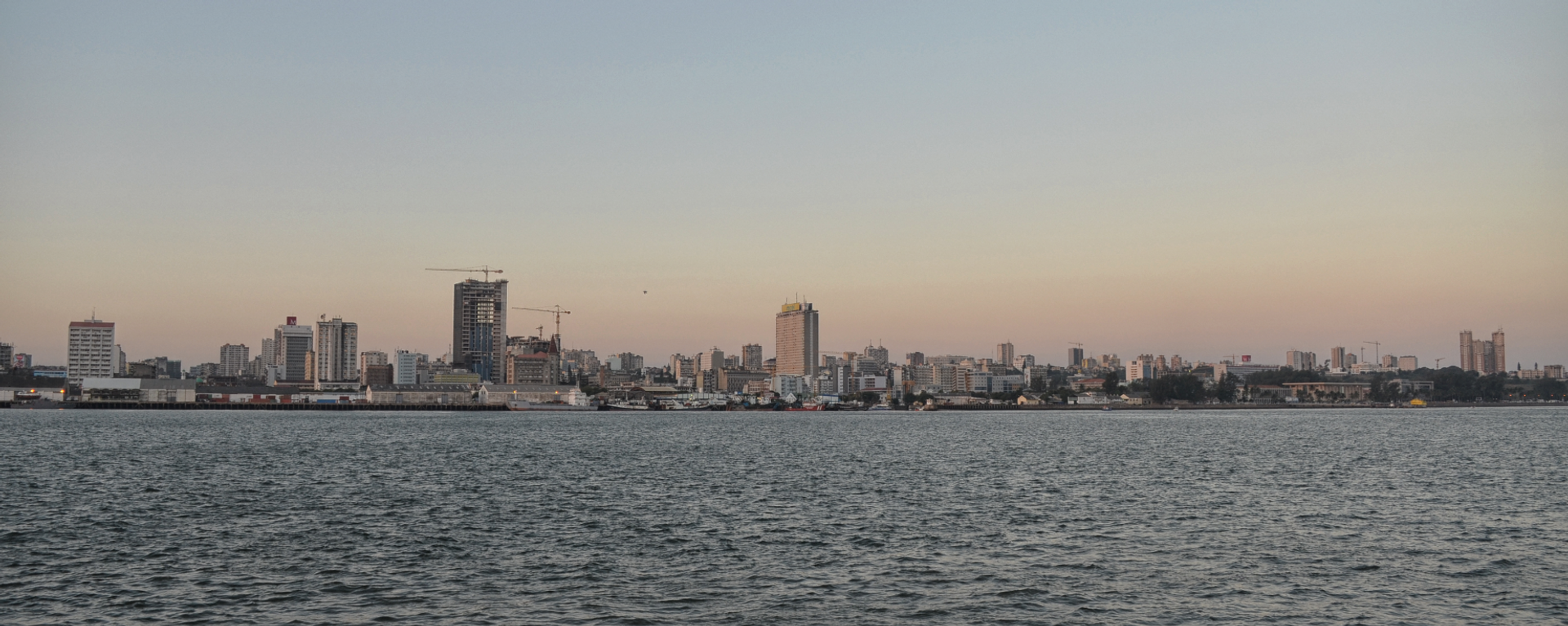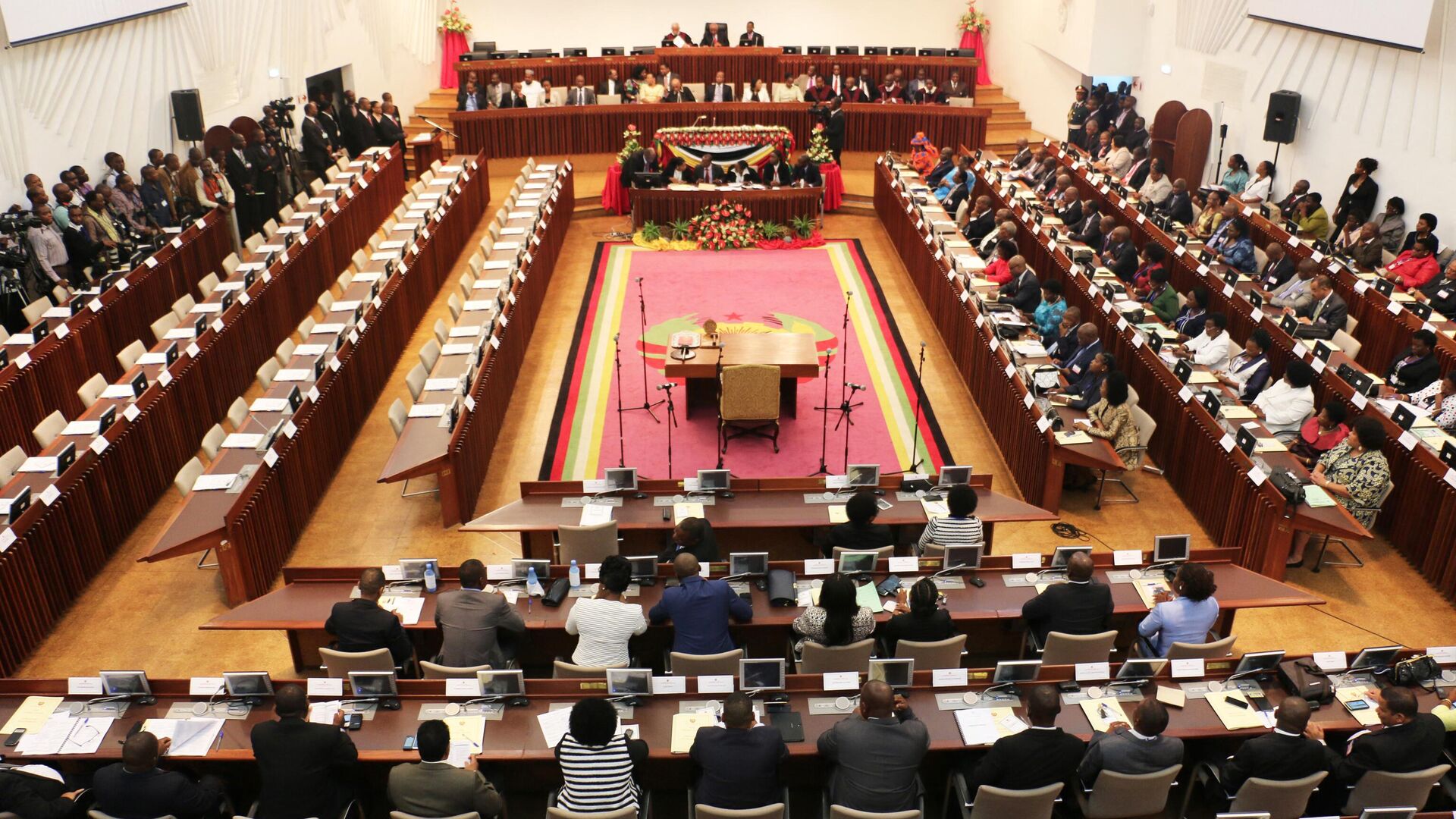https://sputnikglobe.com/20221221/mozambique-to-cancel-13th-salary-for-public-employees-in-2022-due-to-economic-constraints-1105668496.html
Mozambique to Cancel '13th Salary' for Public Employees in 2022 Due to Economic Constraints
Mozambique to Cancel '13th Salary' for Public Employees in 2022 Due to Economic Constraints
Sputnik International
This article is dedicated to the recent announcement of the Mozambique's president that the government decided to cancel '13th salary' payments for civil servants and agents.
2022-12-21T17:50+0000
2022-12-21T17:50+0000
2022-12-21T17:50+0000
africa
east africa
mozambique
civil servants
salary
payments
https://cdn1.img.sputnikglobe.com/img/07e6/0c/15/1105668350_0:160:3073:1888_1920x0_80_0_0_ba3be53403c248e48e81c6843f70839b.jpg
State employees in Mozambique won’t receive the December bonus pay, also known as the “13th salary,” due to the severe economic conditions, the country’s President Filipe Nyusi announced in a speech to parliament. During his annual state of the nation address, the president explained the necessity of the measure, referring to the high expenses arising from the implementation of the new Single Salary Table (TSU), which aims to unify the payment of all civil servants. The TSU is intended to balance the salaries of all public servants regardless of their positions, setting the salary of the head of state as a benchmark. The scale includes 21 salary levels, with the first level for the lowest and the last one for the highest salary. The level of a public servant is determined based on a formula of four criteria: academic qualifications, seniority, career, and age.According to the head of state, the measures are taken as "the moment demands [...] some sacrifices." He underlined that the financial burden associated with the TSU is "gigantic." The salary reform is having a large "impact on public accounts, representing a great weight on the state budget," and a challenge for its management. He added that in the last two months, the state has made retroactive payments, which has also affected the country's budget. At the same time, the president noted that the government is making efforts to enable all pensioners in the country to receive their extra pay, “given the vulnerability of this social group.”Nyusi highlighted the government's commitment "to offer better social conditions to all employees" of the public sector, stating that "this goodwill was proven with the adoption" of the TSU. Mozambique has been experiencing financial issues for years, with international organizations cancelling financial support to the East African nation. However, in May this year, the International Monetary Fund approved a $456 million loan to the country for the first time after a six-year ban over the so-called "hidden debt" scandal that erupted several years ago. The World Bank has also resumed its cooperation with Maputo, signing off on a $300 million grant for the country in August.
https://sputnikglobe.com/20220823/multi-million-dollar-deal-marks-resumption-of-financial-support-of-mozambique-by-world-bank-1099912674.html
africa
east africa
mozambique
Sputnik International
feedback@sputniknews.com
+74956456601
MIA „Rossiya Segodnya“
2022
News
en_EN
Sputnik International
feedback@sputniknews.com
+74956456601
MIA „Rossiya Segodnya“
Sputnik International
feedback@sputniknews.com
+74956456601
MIA „Rossiya Segodnya“
east africa, mozambique, civil servants, salary, financial constraints
east africa, mozambique, civil servants, salary, financial constraints
Mozambique to Cancel '13th Salary' for Public Employees in 2022 Due to Economic Constraints
The new criteria for setting salaries for civil servants in Mozambique were approved by the country's parliament in December last year in a bid to control public recurrent expenditure. However, the implementation of the scale is now making the government refrain from excessive spending.
State employees in Mozambique won’t receive the December bonus pay, also known as the “13th salary,” due to the severe economic conditions, the country’s President Filipe Nyusi announced in a speech to parliament.
During his annual state of the nation address, the president explained the necessity of the measure, referring to the high expenses arising from the implementation of the new Single Salary Table (TSU), which aims to unify the payment of all civil servants.
“Given this overload and the need to meet pressing national imperatives,[…] we regret to announce that this year we are unable to award the bonus of the 13th salary to public employees,” he stated.
The TSU is intended to balance the salaries of all public servants regardless of their positions, setting the salary of the head of state as a benchmark. The scale includes 21 salary levels, with the first level for the lowest and the last one for the highest salary. The level of a public servant is determined based on a formula of four criteria: academic qualifications, seniority, career, and age.
“In the past, there were many issues of favoritism, friendliness and even corruption in the civil service as some ministries paid more than others when the state is the same employer. Let's put an end to that,” the president said.
According to the head of state, the measures are taken as "the moment demands [...] some sacrifices." He underlined that the financial burden associated with the TSU is "gigantic." The salary reform is having a large "impact on public accounts, representing a great weight on the state budget," and a challenge for its management. He added that in the last two months, the state has made retroactive payments, which has also affected the country's budget.
At the same time, the president noted that the government is making efforts to enable all pensioners in the country to receive their extra pay, “given the vulnerability of this social group.”
Nyusi highlighted the government's commitment "to offer better social conditions to all employees" of the public sector, stating that "this goodwill was proven with the adoption" of the TSU.
"Willingness, however, is not enough. There must be conditions for a robust economy,” he explained.
Mozambique has been experiencing financial issues for years, with international organizations cancelling financial support to the East African nation. However, in May this year, the International Monetary Fund approved a $456 million loan to the country for the first time after a six-year ban over the so-called "hidden debt" scandal that erupted several years ago. The World Bank has also resumed its cooperation with Maputo, signing off on a $300 million grant for the country in August.

23 August 2022, 16:29 GMT



